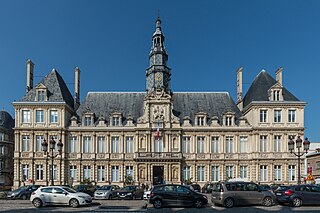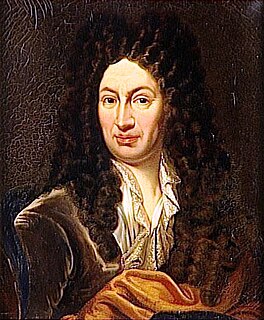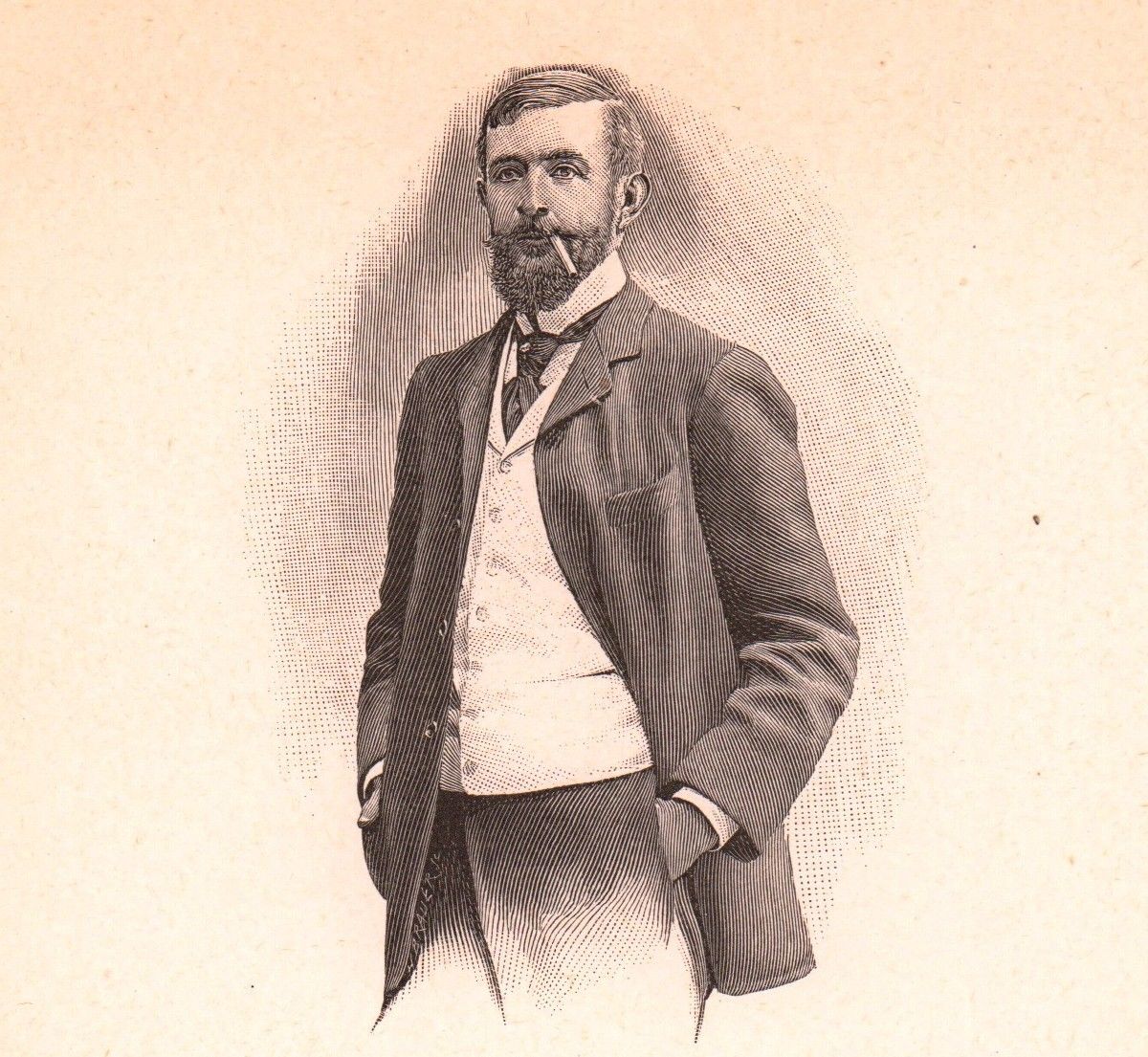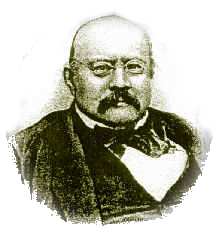
Anatole Jean-Baptiste Antoine de Barthélemy (1 July 1821 –27 June 1904) was a French archaeologist and numismatist.

Anatole Jean-Baptiste Antoine de Barthélemy (1 July 1821 –27 June 1904) was a French archaeologist and numismatist.
He was born at Reims in 1821, and died at Ville d'Avray in 1904.

Reims, a city in the Grand Est region of France, lies 129 km (80 mi) east-northeast of Paris. The 2013 census recorded 182,592 inhabitants in the city of Reims proper, and 317,611 inhabitants in the metropolitan area. Its primary river, the Vesle, is a tributary of the Aisne.
In collaboration with J. Geslin de Bourgogne he published Études sur la Révolution en Bretagne in 1858, and between 1855 and 1879 an exhaustive work in six volumes on the Anciens évêchés de Bretagne; histoire et monuments. In 1880 appeared the Choix de documents inédits sur l'histoire de la ligue en Bretagne, by himself alone. But it was, above all, his numismatical work which established his reputation. This included several popular publications, such as the Nouveau manuel complet de numismatique ancienne (1851; second edition, revised, 1890), and the Nouveau Manuel complet de la numismatique du moyen âge et moderne (1853; new edition revised by Adrien Planchet), and a large number of monographs and articles in the technical reviews. [1]
The following may be specially mentioned: Numismatique mérovingienne (1865); Essai sur la monnaie parisis (1874); Note sur l'origine de la monnaie tournoise (1896); and in the series of instructions issued by the Comité des travaux historiques et scientifiques he edited the number on La Numismatique de la France (1891). In 1897 he was elected a member of the Académie des Inscriptions et Belles-Lettres. [1]
The Comité des travaux historiques et scientifiques (CTHS) is a French research institution created by the Minister of Public Education François Guizot on 18 July 1834 for the purpose of 'leading research and making available unpublished documents, with funds voted from the state budget." Its mission includes promoting the work of learned societies. It is currently affiliated to the École Nationale des Chartes. In 2017, its president was Maurice Hamon and its deputy head was Christophe Marion.

The Académie des Inscriptions et Belles-Lettres is a French learned society devoted to the humanities, founded in February 1663 as one of the five academies of the Institut de France.
His younger brother, Édouard Marie, comte de Barthélemy, who was born in Angers in 1830, published a number of documents on the ancient French nobility and the history of Champagne. [1]
Édouard Marie, comte de Barthélemy was a French administrator and historian. He was the brother of archaeologist Anatole Jean-Baptiste Antoine de Barthélemy.

Angers is a city in western France, about 300 km (190 mi) southwest of Paris. It is chef-lieu of the Maine-et-Loire department and was the capital of the province of Anjou until the French Revolution. The inhabitants of both the city and the province are called Angevins. Not including the metropolitan area, Angers is the third most populous commune in northwestern France after Nantes and Rennes and the 17th in France.

Champagne is a historical province in the northeast of France, now best known as the Champagne wine region for the sparkling white wine that bears its name. It was founded in 1065 near the city of Provins and was made up of different counties descended from the early medieval kingdom of Austrasia.
Marie Nicolas Sylvestre Guillon, French ecclesiastic, was born in Paris.

Charles Oberthür was a French entomologist specializing in Lepidoptera. He was the son of François-Charles Oberthür.
Barthélemy, or Barthélémy is a name of several historical personages. It is equivalent to Bartholomew in French.

Anatole le Braz, the "Bard of Brittany", was a Breton poet, folklore collector and translator. He was highly regarded amongst both European and American scholars, and known for his warmth and charm.

Armand Dayot,, was a French art critic, art historian and leftist politician. He was born in Paimpol, Côtes-d'Armor, Brittany. He founded the journal L'Art et les artistes and the Breton liberal organisation les Bleus de Bretagne.
After a number of French Bible translations in the Middle Ages, the first printed translation of the Bible into French was the work of the French theologian Jacques Lefèvre d'Étaples in 1530 in Antwerp, Belgium. This was substantially revised and improved in 1535 by Pierre Robert Olivétan. This Bible, in turn, became the basis of the first French Catholic Bible, published at Leuven in 1550, the work of Nicholas de Leuze and François de Larben. Finally, the Bible de Port-Royal, prepared by Antoine Lemaistre and his brother Louis Isaac Lemaistre, finished in 1695, achieved broad acceptance among both Catholics and Protestants. Jean-Frédéric Ostervald's version (1724) also enjoyed widespread popularity.

Ferdinand Chalandon was a French medievalist and Byzantinist.

Arthur Le Moyne de La Borderie, was a Breton historian, regarded as a father of Brittany's historiography.

Antoine Jay was a French writer, journalist, historian and politician.
Édouard Constant Biot was a French engineer and Sinologist. As an engineer, he participated in the construction of the second line of French railway between Lyon and St Etienne, and as a Sinologist, published a large body of work, the result of a "knowledge rarely combined."
Henri-Georges Dottin was a French philologist, professor for Greek language and literature at the University of Rennes, succeeding Joseph Loth in 1911. He dedicated himself to the study of the Celtic languages and the culture and mythology of the ancient Celts.

Jean-Baptiste François Rozier was a French botanist and agronomist.

François-Maurice Allotte de La Fuÿe was a French military officer, archaeologist and numismatist.
Jean-Gabriel Prêtre was a Swiss-French natural history painter who illustrated birds, mammals and reptiles in a large number of books. Several species of animal were named after him.
Édouard Fournier was a 19th-century French homme de lettres, playwright, historian, bibliographer and librarian.
Jean-Baptiste-Denis Despré was a French playwright, librettist, journalist, and translator.
Jean Babelon was a 20th-century French librarian, historian and numismatist.
Anatole Loquin was a French writer, comptroller of Customs and musicologist. He also wrote under the pseudonyms Paul Lavigne, Louis Sévin et Ubalde.